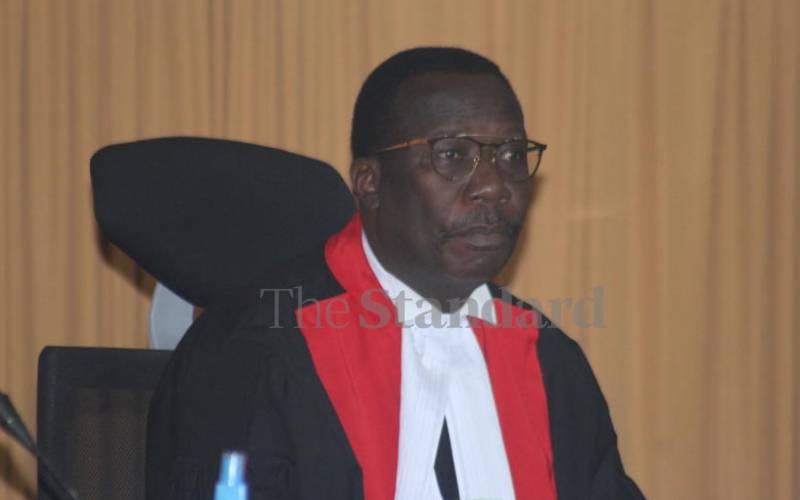×
The Standard e-Paper
Smart Minds Choose Us

Justice Smokin Wankala during the reading of the BBI verdict at the Supreme Court on March 31, 2022. [Collins Kweyu,Standard]
Supreme Court Justice Smokin Wanjala on Thursday ruled that the President cannot initiate a popular initiative to amend the Constitution.